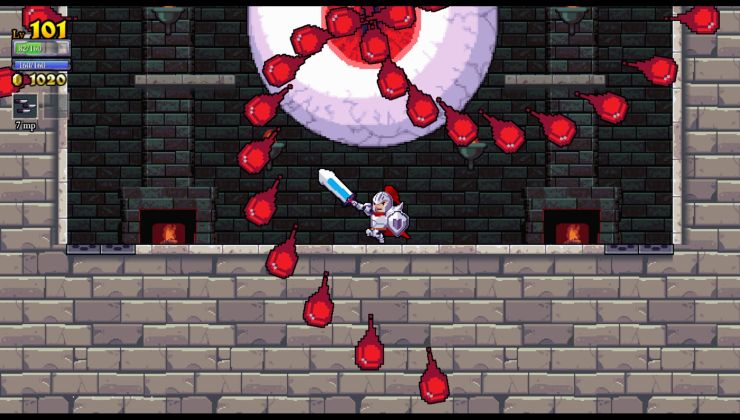During a recent online event the current Microsoft President, Brad Smith, opened up a little bit about open source and their previous failures with it.
Sadly, their history with open source is a rather tumultuous one. Previous Microsoft CEO, Steve Ballmer, famously said years ago how "Linux is a cancer" and no one really forgot. It's interesting now though because of how Microsoft has changed over the years, as they finally warmed up to open source.
In a chat hosted by MIT CSAIL, President Brad Smith mentioned:
Microsoft was on the wrong side of history when open source exploded at the beginning of the century and I can say that about me personally. The good news is that, if life is long enough, you can learn … that you need to change.
They now own GitHub, a website built around code sharing and their own Visual Studio Code editor is also open source under the MIT license. Expanding there, GitHub also recently acquired npm (the company behind Node package manager) too. That's merely scratching the surface, as they're even integrating Linux more and more into Windows itself with their Windows Subsystem for Linux. Heck, they're even going to put their own web browser Edge onto Linux which is now being built with the open source Chromium.
What are your thoughts?
Quoting: EikeQuoting: furaxhornyxI do not fully agree with the "you can still easily mount your physical drives [...]", since I recently change a dead hard drive and it took me a good 20 minutes to figure out how to mount it to /games and have it recognized after a reboot...
You don't even need to fiddle with config files (like /etc/fstab), there's tools for it in the KDE system settings or as Gnome "discs" (not 100% sure about the name). So, I still think it's easy to mimic what Windows does if you find it superior.
Yes, I did use Discs, but for some reason, I could not mount my drive to /games ; it was only mounted is /mnt/strangeUUIDHere, so in the end I just went into /etc/fstab.
Under Windows, a new disk just get mapped to the next available letter. I do find this easy.
Quoting: EikeQuoting: furaxhornyxStill, you can also mount drives or partitions in Windows as folders, too, so you are not limited to 26 mounted drives either.
Yes, some decades after Unix/Linux, Windows did adopt the possibility AFAIR. (Probably not because drive letters are better, BTW.) But if you're happier with letters, you're still stuck with 26 of them.
Yes ; but the original post I replied to (and this is something I have seen in several places, nothing personal against anyone) implied that the letters were a Windows issue. If anything, it just look like an option (which is used by default) in addition to mounting partitions to folders.
Quoting: EikeQuoting: furaxhornyxAlso, If I want to make a backup of my system "/", I am not sure if all my "/home" and "/games" content will be copied too (resulting in a huge backup file, I guess). With letters for separate partitions, I find it easier.
If you want to make a backup, you need to know what you want to copy and where that is. Which is even harder on a modern Windows. Did you know that Windows merges directories "behind the curtain" and shows them as a single one to you? How would you copy that and restore it a similar way?
(Emphasis mine)
Exactly. On Windows, you just use the provided backup tool, and it's done (and yes I am aware of the merged directories). So, I don't see any Windows issues here. Things are just done differently.
Quoting: EikeQuoting: furaxhornyxUnless you have a specific "program X" in mind, I do not know know of any program which configuration is stored in the registry ? Usually the files are within the program folder directly, or in My documents folder (equivalent to /home).
I don't have statistics here, but I think many programs store stuff in the registry. You can try with a handful if you like and search for their name in the registry. You might be surprised... But when you say "usually the files are within the program folder directly, or in My documents folder (equivalent to /home)" - how is this less scattered than /etc/?
To be fair, when I spoke about scattered files, I had one specific example in my head: Pulseaudio (and soundcard) configuration.
According to various information I have found (but have not yet implemented successfully), these are the files that would need to be edited:
- /etc/pulse/default.pa
- /usr/share/pulseaudio/alsa-mixer/profile-sets/native-instruments-komplete-audio6.conf
- some other location, which I remember included something ending in ".d", but the exact reference is probably in one of the several bookmarks I made while trying to fix the issue.
And you also mentionned /etc/Xapp, which I had not heard of (yet). This is what I call "scattered".
On Windows, those files would probably be located in something like %ProgramFiles%\Pulseaudio\ , or %USERPROFILE%\My Documents\Pulseaudio\
Quoting: EikeQuoting: furaxhornyxI still have some program that I used in the late 90s, made for Windows 98, that I can still use without reinstalling anything, and despite changing / reinstalling / changing Windows version (and hard drives) over the years. And if you really need the registry part, it can be exported quite easily.
If you know that it exists in the first place, if it actually is a single place, ... Hardly easier than copying /etc/Xapp, is it?
Hardly easier, hardly harder. But again, in reply to people thinking that the registry is an issue, I am not sure why ?
Quoting: EikeQuoting: furaxhornyxSo, in all fairness, I am not sure as how those different behaviours qualify as issues on the Windows side.Please don't take it personally, but to me it seems more a matter of "I don't know how to"/"I'm not accustomed to it" - which is all ok, but not really Linux' fault. (Neither yours, everybody was new to everything at some point of time.)
I do not take it personally ;)
I am not saying that Windows is better than Linux (that would be the wrong site to do this :P ), but that I do not think than free-bashing Windows on what appears to me as non-issues (things are just being done differently) is helpful to anyone.
Now, if we are going to speak about embedded spywares...





See more from me